On the morning of October 19, 2018, a team of 6 people including Dang The Hung, Consul-General of Consulate General of the Socialist Republic of Vietnam in Guangzhou visited Shenzhen University. Prof. Tao Yitao, director of the China Center for Special Economic Zone Research (CCSEZR), Shenzhen University (SZU), dean of the Belt and Road Research Institute of Shenzhen University and also dean of the Belt and Road Research Institute (Shenzhen) for International Cooperation and Development (BRRIICD), met with Consul-General Dang The Hung and five other consuls in the conference room of the office building. The meeting was also attended by Prof. Gao Xingmin, deputy director of the CCSEZR, Prof. Huang Yaying, dean of the Law School of Shenzhen University, Associate Professor Li Fan, Director Assistant of the CCSEZR, and Yun Wenjie, a teacher of the CCSEZR. The two sides had an in-depth exchange of views on the development experience of China's special economic zones (SEZs) and China-Vietnam cooperation issues within the framework of the "Belt and Road" initiative.
In her speech, Prof. Tao Yitao welcomed the Consul-General team to visit the CCSEZR, the Belt and Road Research Institute of SZU and BRRIICD. She said that the CCSEZR has a long history of interaction and academic exchanges with Vietnam and they have developed a deep friendship with each other. Prof. Tao, Prof. Gao Xingmin and Prof. Huang Yaying who participated in the discussion have visited Vietnam many times on invitation of the Communist Party of Vietnam. Prof. Tao hoped that the exchanges between China and Vietnam this time will be enjoyable and rewarding. Consul-General Dang The Hung in his speech expressed his gratitude towards the CCSEZR's warm reception. He said that he visited Shenzhen University before and has already heard about the events including the World Special Economic Zone Development Forum hosted by the CCSEZR. He expressed thanks to the CCSEZR for its support in the construction of the Vietnam's SEZs. He said they hope that through today's discussion with the CCSEZR experts, they can further learn the construction experience of China's SEZs and the "Belt and Road Initiative" in theory and further enhance the all-round cooperation and exchanges between China and Vietnam.
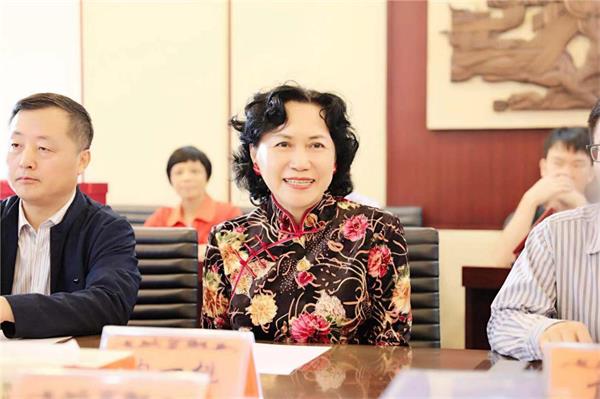
Prof. Tao Yitao, director of the CCSEZR, SZU, dean of the Belt and Road Research Institute of SZU and also dean of the BRRIICD
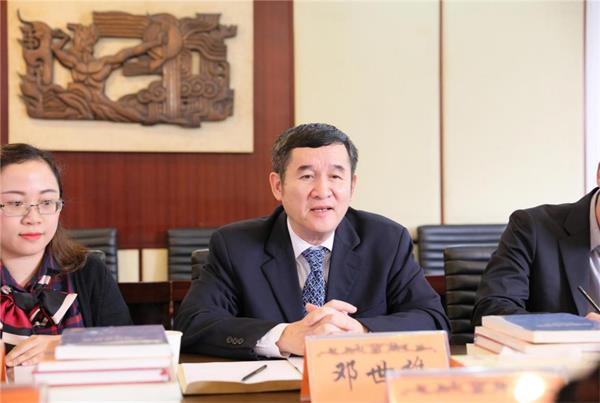
Dang The Hung, Consul-General of Consulate General of the Socialist Republic of Vietnam in Guangzhou
Prof. Tao Yitao gave a brief introduction to the research institute. She said that the CCSEZR is the only academic institute focusing on SEZ issues among key research institutes of humanities and social science of the Ministry of Education of China. The CCSEZR has been devoted to the SEZ study for more than 20 years and have published the Annual Report on the Development of China's Special Economic Zones (Blue Book) for 12 consecutive years. The CCSEZR also authored the Studies on China's Special Economic Zones, the only bilingual academic journal in China focusing on SEZ issues. The English versions of the two books are published by Springer. The CCSEZR has also established the "World Special Economic Zone Development Forum", an academic brand with domestic and international clout, which has been successfully held for 19 times consecutively. The Forum has been held in Vietnam and the Russian Far East and is planned to be held in Pakistan next year. Following Prof. Tao’s introduction, the two sides reviewed the history of the cooperation between the CCSEZR and Vietnam. Their initial exchanges started from the Consulate General of the Socialist Republic of Vietnam in Guangzhou. Frequent exchanges and cooperation have been launched since then. The attendees also wished a long-lasting friendship between the Vietnamese and the Chinese people and more brilliant achievements through reform and opening-up by China and Vietnam.
The participating experts responded to and discussed the questions raised by the Vietnamese delegation. Prof. Tao Yitao pointed out that only China and Vietnam have succeeded in the reform of market economy among the socialist countries. China succeeds in SEZs because: 1) It sticks to its own path; 2) It adopts a gradual approach to reform; 3) In the process of transition from a planned economy to a market economy, the government has not fully adopted a laissez-faire policy to ensure that the government plays a dominant role to some extent; and 4) The government revolutionized itself in the course of reform. She said that compared with China, Vietnam commenced its reform from politics and established the first competitive election system among the socialist countries. Prof. Huang Yaying, dean of the School of Law, responded to the questions by the Vietnam's representative from a legal perspective. He pointed out that the issue of corruption shall be considered for the establishment of SEZs. From the very beginning, it is necessary to have a restriction mechanism in place to curb the corruption caused by government’s expanding rights with the rapid development of the economy. At the same time, an SEZ should be rated as a city with a higher administrative level, at least as a sub-provincial city. In addition, what's most important is to grant legislative power to SEZs and to pass legislation for the special preferential policies. Prof. Gao Xingmin pointed out that SEZs refer to areas where special policies are granted in certain regions. Free trade zones are also a form of SEZs. In the future, SEZs will continue to exist, shouldering different missions of the times and contributing to China's economic development. Teacher Yun Wenjie pointed out that China’s "Belt and Road Initiative" will not only boost the development of China and Asian countries, but also provide an opportunity for European countries and the Americas. It is called "initiative" because China wants other countries to propose their own plans and work together for joint construction and development.
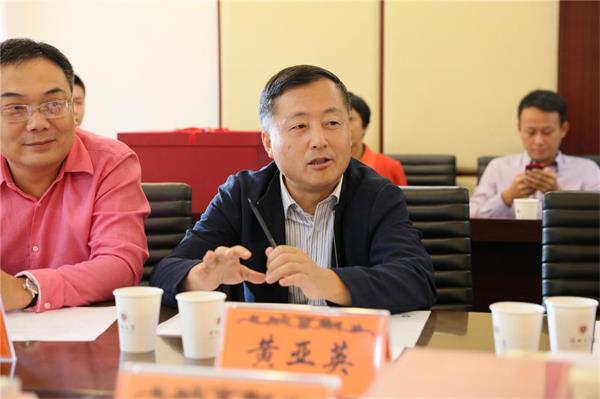
Prof. Huang Yaying, dean of Law School of Shenzhen University
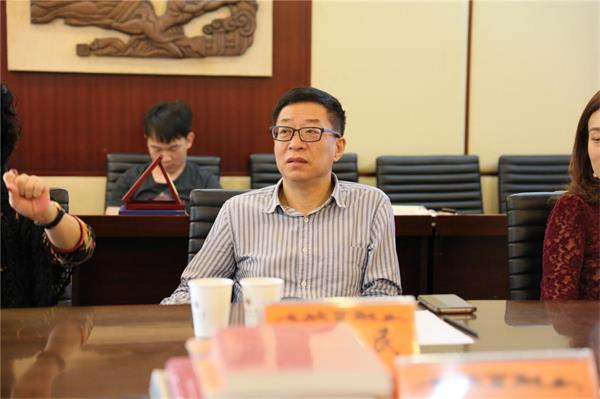
Prof. Gao Xingmin, deputy director of the CCSEZR
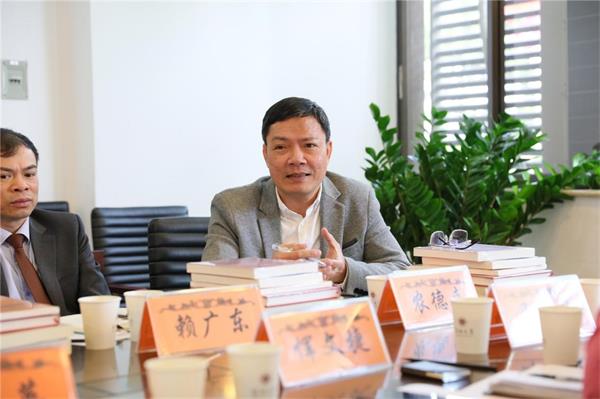
Nong Duc Lam, a consul of Consulate General of the Socialist Republic of Vietnam in Guangzhou
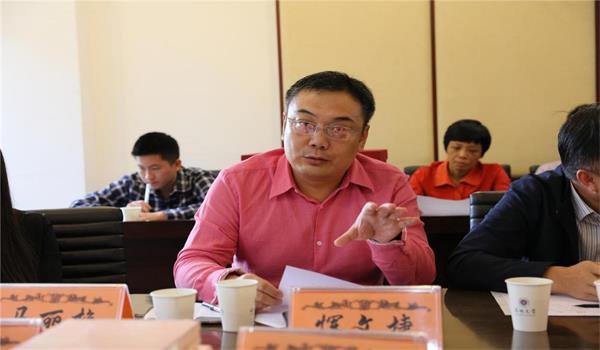
Yun Wenjie, a teacher of the CCSEZR
In the concluding remarks, Consul-General Dang The Hung thanked the participating scholars and experts for their valuable suggestions and pointed out that Vietnam is willing to further cooperate with China based on the SEZs and the Maritime Silk Road. He said he hopes that Vietnam will attract Chinese entrepreneurs and entrepreneurs of both sides will find win-win solutions within the framework of the “Belt and Road” Initiative. Prof. Tao Yitao once again expressed her gratitude towards the Vietnam consular team for their visit. She said she hopes that more academic exchanges and seminars will be held between the CCSEZR and Vietnam and the cooperation between the CCSEZR, the Belt and Road Research Institute of Shenzhen University and the BRRIICD and Consulate General of the Socialist Republic of Vietnam in Guangzhou could act as a bridge for communication between Guangdong entrepreneurs and Vietnam. The meeting was concluded amid a friendly atmosphere and attendees posed for photos in front of the office building.
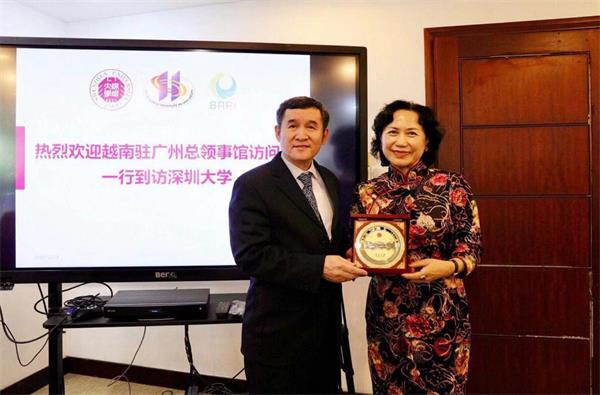
Prof. Tao Yitao sends an SZU badge to the Consulate General of the Socialist Republic of Vietnam in Guangzhou as a gift
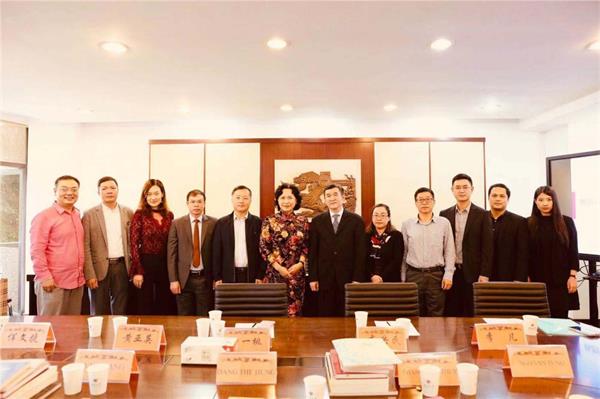
Attendees pose for a group photo
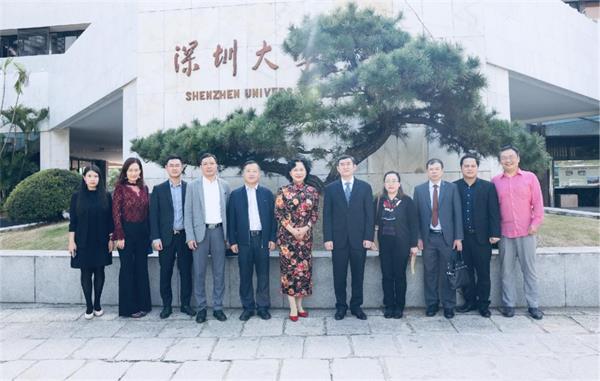
Attendees pose for a group photo








